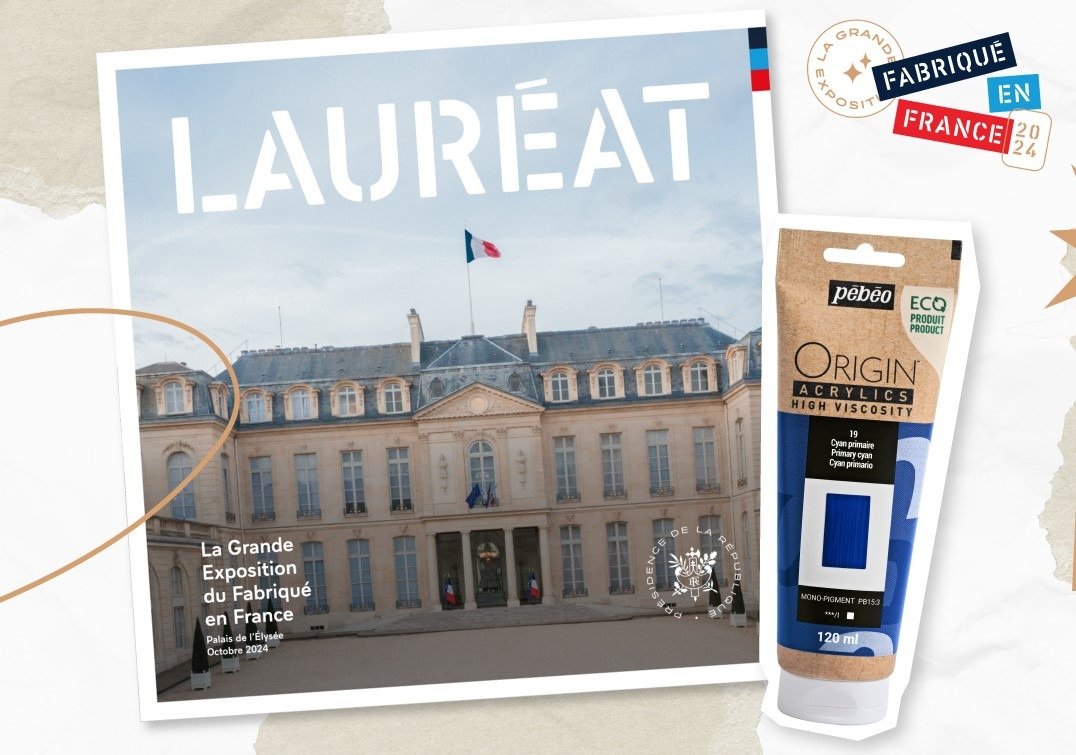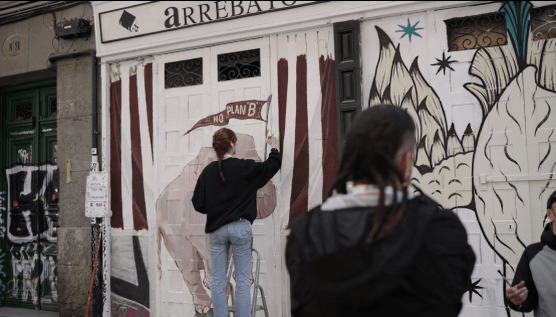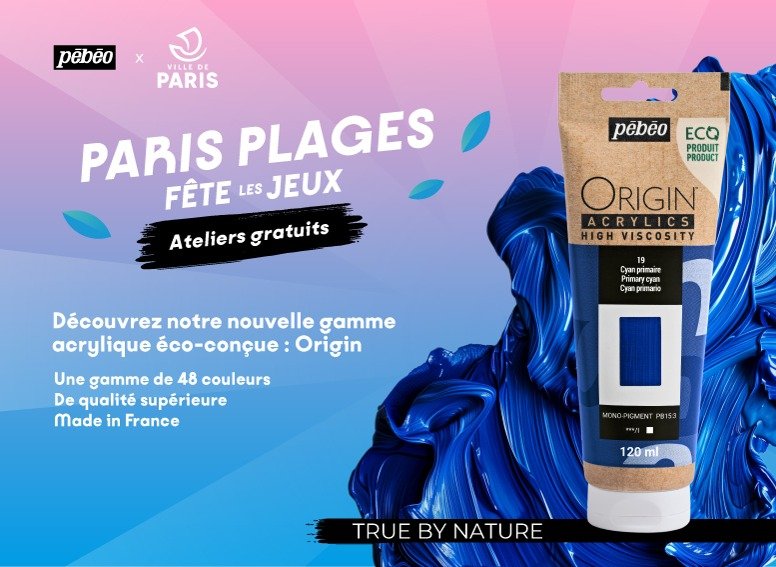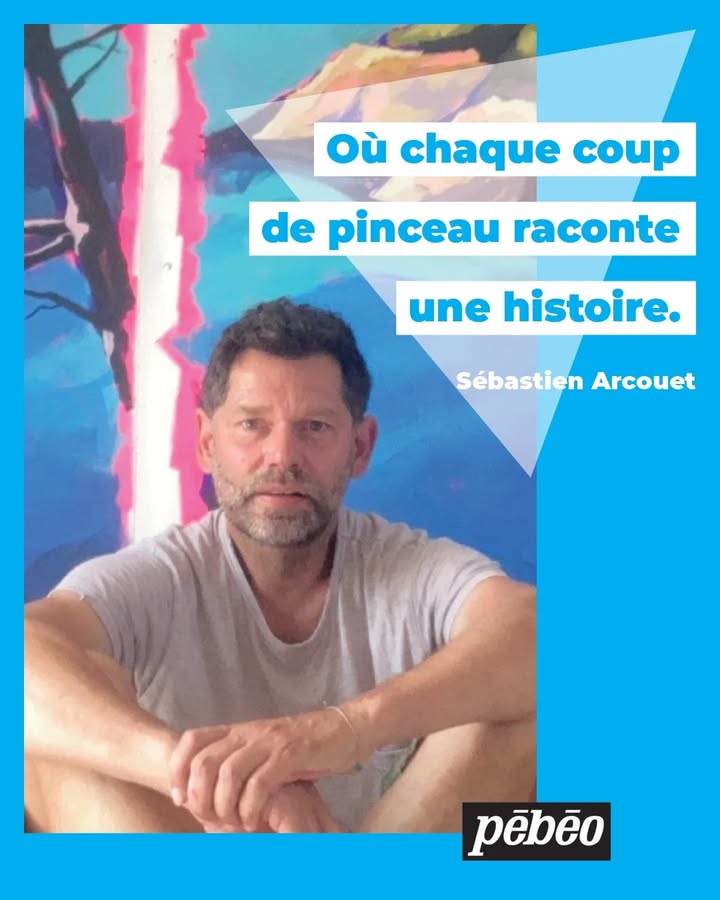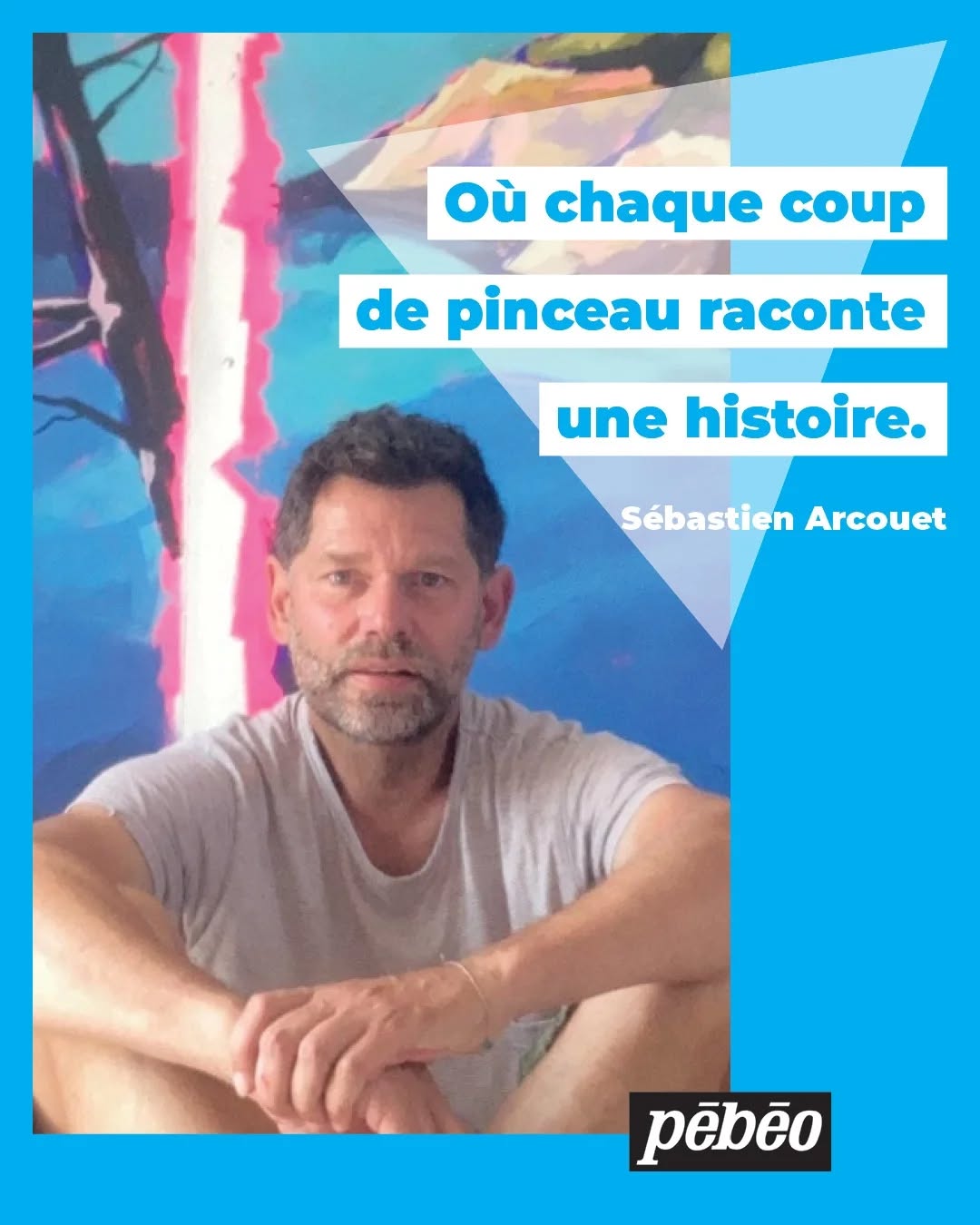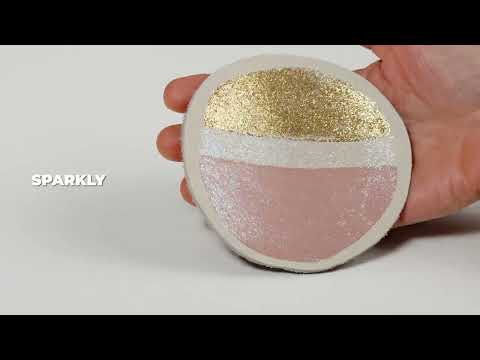INTERVIEW ERIC CHAVEAU ET ARTISTIKREZO
ERIC CHAVEAU : “ON INNOVE DANS UNE VOLONTÉ DE RENDRE NOS PRODUITS ACCESSIBLES”
Rencontre avec Eric Chaveau, président de Pébéo, à l’occasion de la 5e édition du concours Mixed Media organisé par la marque et consacré cette année à l’art urbain. Les 25 finalistes du concours international verront leurs œuvres exposées sur Fluctuart, centre d’art urbain flottant au niveau du Pont des Invalides, du 19 mai au 2 juin prochain. Eric Chaveau nous présente ici l’histoire de Pébéo, ses valeurs et son évolution.
Pouvez-vous nous présenter la marque Pébéo ?
Nous sommes désormais une entreprise plus que centenaire. Au départ nous étions fabricants de pigments, d’où le nom “Pébéo” puisque PbO correspond à la formule de l’oxyde de plomb. Puis à la fin des années 1940, début des années 1950, nous avons bifurqué vers ce qu’on appelle les couleurs fines, c’est-à-dire tout ce qui est lié à l’activité artistique éducative. Aujourd’hui nous sommes donc fabricants de couleurs, présents dans 110 pays dans le monde et nous exportons plus de 80% de nos productions.
Quel est votre rôle au sein de Pébéo ?
Pébéo est une entreprise familiale, je suis la troisième génération. Aujourd’hui je préside le groupe et je suis en train de préparer la quatrième génération avec mon fils.
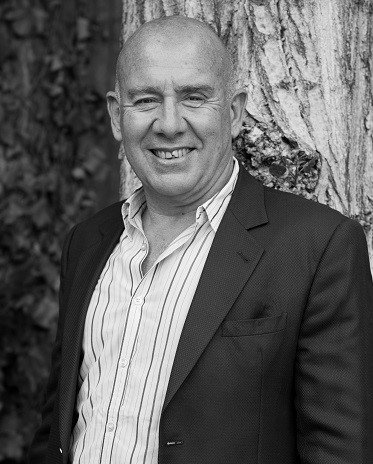
ERIC CHAVEAU
Pébéo est une marque française présente à l’international, est-ce important pour vous de revendiquer le savoir-faire français et de le diffuser?
Ce savoir-faire n’est pas exclusif mais il a été reconnu par la France puisque notre entreprise détient le label Entreprise du Patrimoine Vivant (EPV). C’est une forme de reconnaissance de notre savoir-faire et ce label s’associe bien avec le fait de porter une image française qui est aux arts, à la culture, à la mode… On a aussi eu la chance avec “Pébéo” d’avoir un nom qui marche plutôt bien à l’international. D’ailleurs pour la petite histoire, quand on s’est implantés en Chine il y a une vingtaine d’années, on a travaillé sur le nom de la marque avec des sémiologues. Ce n’était donc pas complètement le fruit du hasard mais les caractères qu’on a utilisés et qui se prononcent presque comme Pébéo phonétiquement, signifient “l’azur céleste d’Europe”.
Quelles sont les valeurs portées par Pébéo ?
Dans nos valeurs il y a évidemment le savoir-faire qu’on vient d’évoquer, la qualité, mais il y a surtout l’innovation. Je crois que c’est ce qui nous démarque de nos confrères, on est la société innovante du secteur. C’est une valeur très forte de l’entreprise, avec un positionnement plutôt axé sur le contemporain. Pébéo a 100 ans et ça fait un peu plus d’une cinquantaine d’années qu’on travaille dans le domaine mais certains de nos confrères sont là depuis 200 ans. Eux sont donc plutôt dans la tradition, la où nous sommes dans la modernité et l’innovation. Une autre valeur essentielle de Pébéo c’est la démocratisation des activités. Si l’on innove, c’est aussi dans une volonté de rendre nos produits accessibles au plus grand nombre. La notion d’engagement est également une valeur forte au sein de l’entreprise, notamment l’engagement de ses équipes, tout comme l’aspect international, ainsi que ce qui est lié aujourd’hui au développement durable. On essaie notamment d’innover sur des produits verts, de prendre en compte l’empreinte carbone pour les packagings… Il y a une vraie démarche de la part de l’entreprise à ce niveau-là.
Pouvez-vous nous présenter le concours Mixed Media ? Quelle était la volonté derrière la création de ce concours ?
Le concours est né il y a 5 ans en Angleterre. Le nom “Mixed Media” vient du fait que Pébéo possède un catalogue très large de produits, qui sort du produit traditionnel Beaux-Arts et qui va aussi sur des produits qu’on qualifie de “couleur spécialité”, utilisés notamment dans le loisir créatif. Aujourd’hui les artistes aiment mixer, innover… On souhaite qu’ils puissent réaliser des œuvres avec d’autres médiums que la peinture à l’huile ou l’acrylique, grâce à l’ensemble des produits proposés par Pébéo. L’idée était donc de promouvoir la richesse de notre catalogue à travers la reconnaissance de consommateurs et un Prix qui monte en puissance progressivement. L’année dernière le premier prix a été donné à une Américaine, le second à une Japonaise et le troisième à un Russe, ce qui est assez représentatif de l’aspect international du concours.
Pourquoi avoir choisi l’art urbain pour cette 5e édition ?
Là encore on est dans la modernité avec ce choix de l’art urbain et l’émanation du street art ces dernières années. Ce choix est évidemment lié au partenariat que nous avons avec Fluctuart car si le concours a eu lieu à Londres les années précédentes, l’idée était d’avoir pour cette édition à Paris un thème qui soit en accord avec le positionnement de Fluctuart. De plus, l’art urbain correspond aujourd’hui à quelque chose auprès des artistes et jeunes artistes, cela leur parle.
Vous avez fait intervenir l’année dernière des artistes tels que Said Dokins ou ILK, est-ce important pour vous d’associer des artistes à la marque, à la manière d’ambassadeurs ?
Tout à fait ! C’est une démarche qu’on développe de plus en plus. Je pense que c’est toujours bien quand la parole d’une marque est portée par des ambassadeurs reconnus. En effet en complément du concours de l’année dernière, il y a eu des murs peints par Said Dokins et ILK en collaboration avec Franck Pellegrino à Shoreditch. À travers la richesse des produits que nous avons, on cherche un certain nombre d’ambassadeurs qui s’associent à la marque et qui portent les produits.
Vous êtes partenaire de Fluctuart, collaborez-vous souvent avec des institutions artistiques ou des lieux culturels ? Pourquoi ?
Oui, on l’a toujours fait. C’est une manière pour l’entreprise de s’ancrer dans son territoire. J’étais un membre fondateur de l’association Mécènes du sud et j’en ai été le président pendant les cinq premières années. L’association avait pour but de promouvoir la création contemporaine dans la région marseillaise ou les artistes du Sud implantés à l’étranger. J’ai évoqué plus haut l’importance de rendre nos produits accessibles au plus grand nombre et quand on aide des institutions, c’est toujours avec cet objectif en tête. C’est ce qu’on fait par exemple avec l’association Arts et Développement, qui propose des activités artistiques dans les cités déshéritées. On a aussi un partenariat fort avec La Source, l‘association créée par Gérard Garouste qui œuvre pour la réinsertion des personnes en difficulté à travers des pratiques artistiques (théâtre, peinture…). Il y a également la Fondation Culturespaces, qui à travers les cours auprès des jeunes enfants enseigne l’art. À chaque fois qu’on aide une institution ou une association, c’est dans l’optique de promouvoir les activités et de les rendre accessibles, comme je le disais, au plus grand nombre.
Comment diffusez-vous la marque à travers le monde ?
Je crois qu’aujourd’hui on possède un outil qui nous facilite grandement la tâche qui est le digital, notamment notre site internet qui est traduit en neuf langues. Les réseaux sociaux en particulier sont un outil qui facilite la diffusion, quand on les compare aux anciens catalogues et magazines qu’il fallait imprimer, ce qui était à la fois coûteux et pas très écologique. Il y a également les ambassadeurs, dont on a parlé plus haut, ainsi que le contenu, qui est important. Enfin, le concours international sert aussi à diffuser cette image. L’idée est de faire en sorte qu’il monte en puissance année après année, pour devenir un véritable rendez-vous.
Comment créez-vous du lien avec les utilisateurs de Pébéo ? Comment les identifiez-vous, ainsi que leurs attentes ?
On a des ambassadeurs mais on a aussi des démontrasteurs qui sont présents dans les magasins. En ce moment c’est un peu plus compliqué avec le Covid mais habituellement, il y a des démonstrateurs avec des consommateurs qui y assistent. Pour ce qui est d’identifier les besoins, on a notre service consommateur qui est une vraie mine d’informations, il nous fait remonter beaucoup de choses à partir de notre site internet et des réseaux sociaux. On est à la fois sur une stratégie de demande, quand on fait de l’acrylique, de la peinture à l’huile, on répond à un besoin du marché, et sur une stratégie d’offre, qui est liée à l’innovation. Là c’est davantage les tendances, le laboratoire, à travers des innovations techniques qui font qu’on va développer tel produit ou tel produit. Notre stratégie est donc d’équilibrer les deux, on nourrit une spirale vertueuse.
Quels sont les prochains projets pour la marque ? Avez-vous des ambitions particulières pour la suite ?
Ce qui s’est passé avec le Covid et les différents confinements a été un vrai booster pour nos activités. Pas uniquement à l’échelle de Pébéo mais pour l’ensemble de la profession, et tant mieux d’ailleurs. Toutes les activités d’intérieur, la musique, la peinture, la cuisine, le bricolage, ont explosé. Ça a créé une vraie dynamique au niveau mondial, avec des consommateurs qui ont découvert ou redécouvert ces activités, qui ont eu plus de temps à y consacrer. On revient ici aux valeurs de Pébéo, c’est peut-être un moyen de s’évader, on parle beaucoup d’art-thérapie. Dans les périodes un peu anxiogènes, quand on fait de la peinture ou de la musique, on se vide la tête. L’important aujourd’hui pour la marque c’est à travers l’innovation, l’accompagnement de nos réseaux, des consommateurs, de bien accompagner ce moment et de le faire aussi au niveau international. Dans cette optique nous avons un peu renforcé les équipes commerciales et internationales, il y a également un nouveau site internet qui va sortir dans les prochaines semaines. Le monde bouge et l’enjeu pour l’entreprise est de s’adapter à l’évolution, notamment autour de cette communication digitale qui est de plus en plus importante. L’enjeu immédiat est d’adapter l’outil industriel pour répondre à la demande. Le second enjeu, à plus long terme, est de faire en sorte que cette mise en avant des activités artistiques, pratiques, notamment dans l’art plastique en ce qui nous concerne, puisse perdurer. L’idée est donc de profiter de cette période faste pour le secteur pour accompagner le développement de l’entreprise.
Produits Connexes
à lire aussi
@PEBEO Suivre Pébéo sur Instagram
Newsletter
Inscrivez-vous à notre Newsletter et restez informé de nos actualités. Pour en savoir plus sur la gestion de vos données personnelles et pour exercer vos droits, cliquez, ici
